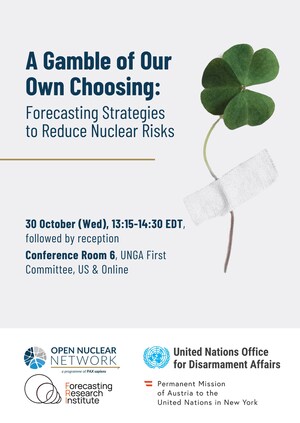SEATTLE, June 20, 2024 /PRNewswire/ -- Even as the role of wildlife in disease outbreaks is increasingly recognized, our ability to detect and respond to emerging wildlife threats remains primitive at best. One major obstacle? The chronic underfunding of the wildlife data surveillance sector compared to its human and agricultural counterparts.
PAX sapiens, Pacific Northwest National Laboratory's (PNNL) AI-Driven One Health Security Program and Western University of Health Sciences College of Veterinary Medicine convened, for the first time, a group of public, private, academic, and philanthropic stakeholders to negotiate harmonizing wildlife data and to offer sophisticated analytic tools for wildlife experts. This marks a concrete step towards predictive and proactive biosurveillance, safeguarding both wildlife and human health. Achieving this would be good for wildlife, good for public health, and good for national security.
In a world where the next pandemic could be lurking just around the corner, the importance of early detection and proactive surveillance cannot be overstated. However, "it has been a quarter of a century since the lessons of West Nile Virus, and we still have not fully integrated biosurveillance across species. The United States continues to grapple with vulnerabilities in its ability to share crucial wildlife data," emphasized Dr. Tracey McNamara, Western University of Health Sciences College of Veterinary Medicine, Veterinary Pathologist.
The advances made in data sharing, protection, privacy, and predictive capabilities offered by PNNL's One Health – OH-TREADS platform mark a step toward improving wildlife programs, providing decision-makers with an additional view to predict and respond to emerging threats. "We're not just talking about protecting wildlife; we're talking about protecting human health and security," reflected Dr. Louise Gresham, Senior Fellow Global Health Security, PAX sapiens. "This is about preventing predictable, preventable catastrophes and building a more peaceful world."
PNNL will create custom tools for data sharing that will allow others to do a better job for wildlife. These tools will leverage the world class technology available at one of our national labs not made available previously to researchers in the wildlife sector.
OH-TREADS is a comprehensive solution to the challenges of data sharing among public and private wildlife partners. Through state-of-the-art data science and engineering, PNNL scientists use big data analytics, mathematical modeling, and artificial intelligence to develop global proactive strategies for disease outbreak prevention in a shared ecosystem of animals, humans, and environment.
"The sharing of ecosystems, climatic conditions and human activities has resulted in severe and novel epidemics," said Dr. Mark Rweyemamu of SACIDS in Tanzania, Africa.
Moving forward, increased partnerships with OH-TREADS will be crucial in quality wildlife data exchange and generating timely detection and situational awareness across the United States.
As the world faces the threat of emerging diseases, initiatives like OH-TREADS offers a glimmer of hope. Through collaboration, innovation, and a shared commitment to biosurveillance, we can build a safer, more resilient future for all.
About PNNL OH-TREADS:
PNNL OH-TREADS gives a solution to the challenges of data sharing among public-private partners by providing protection, privacy, capabilities, and predictive tools for decision making. The Artificial Intelligence (AI)-Driven One Health Security activities are focused on disrupting health threats and their impacts through state-of-the-art data science and engineering, science-based decision-making, and communication tools.
About PAX sapiens:
PAX sapiens is a nonprofit foundation that works to address complex global problems through coordinating [P^3] networks of private-sector, philanthropic, and public institutions. PAX sapiens works to promote better global systems for pandemic prevention.
Media Member Contact
Abby Sun
[email protected]
Rodney Tanaka
[email protected]
Interview Opportunities
Dr. Tracey McNamara DVM, Diplomate, A.C.V.P Western University of Health Sciences College of Veterinary Medicine, Veterinary Pathologist and Professor of Pathology
Dr. Louise Gresham PhD MPH PAX sapiens, Senior Fellow Global Health Security
SOURCE PAX sapiens

WANT YOUR COMPANY'S NEWS FEATURED ON PRNEWSWIRE.COM?
Newsrooms &
Influencers
Digital Media
Outlets
Journalists
Opted In






Share this article